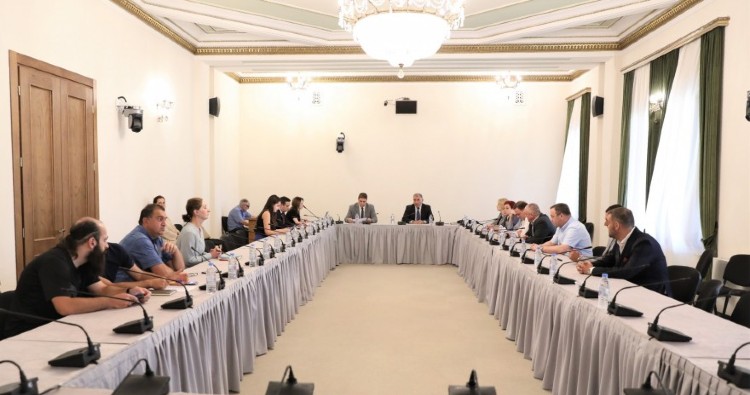Georgian PM advisor in human rights protection presents draft National Human Rights Strategy to members of parliament

Mikheil Sarjveladze, the Chairman of the Human Rights Committee said the document responded to a “number of tasks” of the implementation of the 12-point conditions outlined by the European Union for granting Georgia the membership candidate status. Photo: Parliament of Georgia.
Niko Tatulashvili, the Advisor to the Georgian Prime Minister Irakli Garibashvili on human rights protection issues, on Tuesday, presented a draft document of the National Human Rights Strategy to the members of the Georgian Parliament at the Human Rights and Civil Integration Committee.
The second document of the national strategy for 2022-2030 years, developed by the Georgian Government with multi-sectoral cooperation, aims to strengthen the systematic guarantees of human rights protection in the country, and also includes the existing challenges and presents the state’s vision in response to them, the press office of the Parliament said.
The strategy unites human rights and freedoms under four main priorities: strengthening justice, rule of law principles, institutional democracy and effective use of civil and political rights. It also includes strengthening the protection of economic and social rights, as well as reflecting the constitutional guarantees of equality in the state policy and their implementation in practice.
Protection of the rights and freedoms of the people affected by the ongoing Russian occupation of Abkhazia and Tskhinvali (South Ossetia) of Georgia’s regions, including internally displaced persons and refugees from the occupied territories, the population of villages adjacent to the occupation line, and people living in the occupied territories are also comprised in the strategy.
Mikheil Sarjveladze, the Chairman of the Human Rights Committee said the document responded to a “number of tasks” of the implementation of the 12-point conditions outlined by the European Union for granting Georgia the membership candidate status.
Tatulashvili noted that the document had been shared with “all interested parties” and would take its final form after receiving feedback from the members of the parliament, who had expressed their desire for the “quick approval” of the document.
 Tweet
Tweet  Share
Share